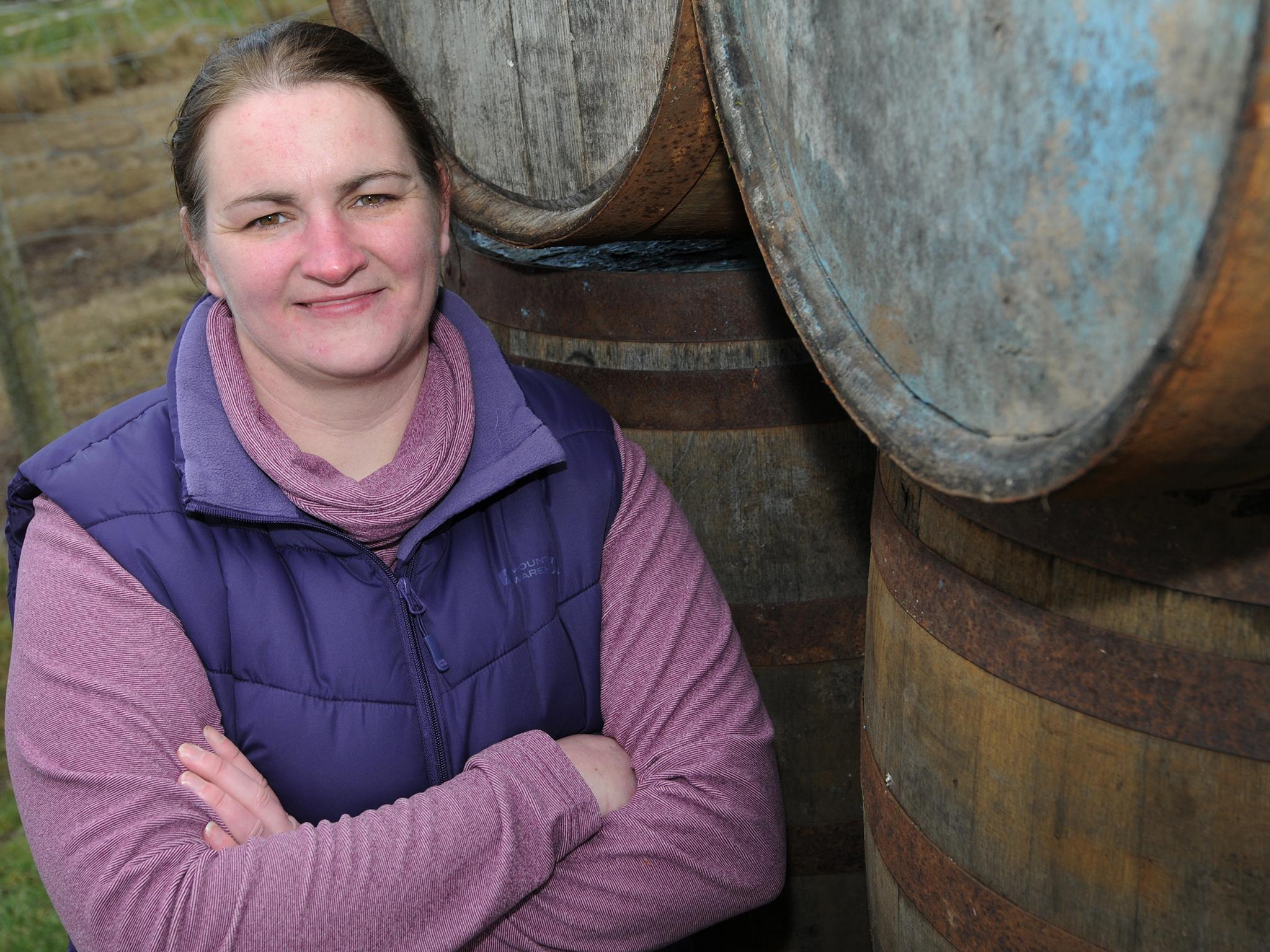Meet Scotland's only woman whisky distiller
Heather Nelson is joining a small group of women who have broken into the masculine world of whisky-making

Heather Nelson grew up on her grandparent’s farm in a fertile pocket of land in the highlands of Ross-shire in Scotland. As a child, she quickly learned that agriculture isn’t just about business, but a way of life.
As soon as she could run fast enough, she was called in to herd cattle and sheep with her brothers. When she was old enough to drive, she used a tractor to cart grain. So it never occurred to her that being a woman would ever be a remarkable thing, or stop her from doing whatever she wanted.
Now, Nelson might have to get used to fighting the idea that gender is a barrier, as she has become the first woman in almost two centuries to open a whisky distillery in Scotland. The first is believed to be Helen Cummings of Cardhu, which she founded in 1824.
She is currently putting the finishing touches to her Toulvaddie micro-distillery based at the Fearn aerodrome, before it opens in May. Once the distillery is up-and-running, she hopes to produce 30,000 litres of alcohol a year in the bellies of two traditional copper stills. The whisky will be easy to drink, with peated and unpeated expressions.
Unlike some other new distilleries, Nelson won’t be creating a gin to fund her first year but is instead selling first-year casks at £2,000 a pop, and inviting potential supporters to join the Distillery Founders’ Club for £595. Those who do will receive a 200ml bottle of the Toulvaddie Single Malt Foudners’ Reserve when it is released, and two malts aged five and 10 years.
By opening her distillery, Nelson will be selling a drink that is perhaps only matched by beer in its associations with masculinity. That is an attitude Nelson hopes to change.
However, a little digging reveals that while she is perhaps not taking a path well trodden, Nelson is certainly not the first woman to have a career in the whisky industry after Cummings.
“There are many unsung women heroes in distilling who have been working in the industry for years without recognition,” Nelson tells The Independent. She cites Maureen Robinson – a master-blender of drinks giant Diageo’s whisky team who works with both blended Scotch, single malts and curates the brand’s annual Special Releases. She “was working in the industry before I was even born,” says Nelson.
I was brought up in a household where your gender made no difference, you were treated equally
In her school years, Nelson heard of Rachel Barrie, the master blender at Morrison Bowmore who previously worked at Glenmorangie. “I never thought of it as an industry a woman could not enter,” she says.
To Nelson, whisky was and is an integral part of celebrations in Scotland, regardless of whether a person was male or female.
“I was brought up in a household where your gender made no difference, you were treated equally,” she says. “If my dad was going to have a dram at night, my mum would have one too. At no point was whisky ever a gender issue. I have three brothers, and growing up, once you reached 18 you were offered a dram. There was no difference for the boys and me.”
As she dives into distilling, Nelson has no interested in making her whisky palatable in a bid to attract women who apparently prefer more delicate tastes. That, of course, is simply not true.
“I think whisky has traditionally been thought of as a man’s drink but that is definitely changing, slowly. There is still a patronising element of if we tell women it’s OK to mix the whisky then they will be more encouraged to drink it. I know plenty of women who would never mix a whisky, and plenty of men who do,” says Nelson.
But while a distillery run by a woman will certainly attract attention, the success of the venture will come down to the whisky. And Nelson is very new to the industry, having previously worked in the media. She was drawn to whisky-making by her agricultural roots and the simple but varied drink containing just three ingredients. In fact, she is still working to gain her Institute of Brewing and Distilling qualifications, but HM Revenue & Customs has given the company a license.
“Older whisky distilleries are at an obvious advantage – even when they bring out a new expression, they have decades, if not centuries, of experience and brand heritage to get a customer to even look at their product,” she admits.
“What will make Toulvaddie whisky unique is the whole process will be controlled by myself,” explains Nelson. “It is a very small distillery which makes this possible, but everything from cask, barley and yeast selection, to fermentation times and cut points, will all be decided on by me. When it comes to deciding when the whisky is ready – again, that will come down to me.”
And the support of the whisky community has buoyed Nelson on. “I have been contacted by some of the other smaller distilleries who have started up in the past five years with messages of support and also some who are in the process of getting their distilleries off the ground. It’s not an easy thing to,” she adds. “I have never been made to feel that because I am a woman I shouldn’t be doing what I am doing. It has been the opposite in fact.”
The only thing Nelson is lacking, then, is experience. But she is unfased by that. “Every distillery had to start somewhere and I am just at the start of that exciting journey,” she concludes.
Join our commenting forum
Join thought-provoking conversations, follow other Independent readers and see their replies
Comments
Bookmark popover
Removed from bookmarks